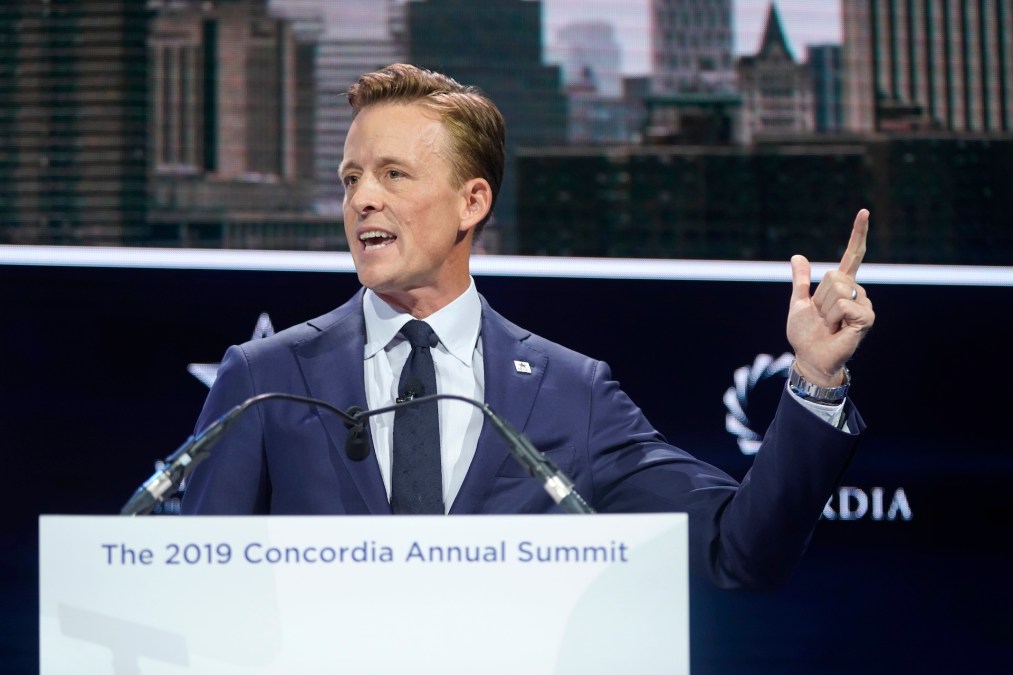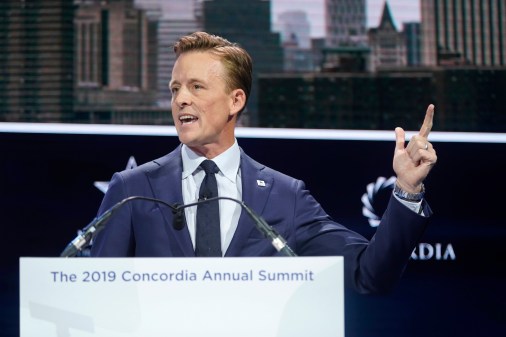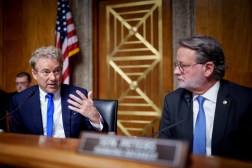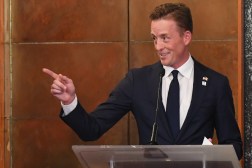New National Cyber Director Cairncross faces challenges on policy, bureaucracy, threats

Sean Cairncross took his post this week as national cyber director at what many agree is a “pivotal” time for the office, giving him a chance to shape its future role in the bureaucracy, tackle difficult policy issues, shore up industry relations and take on key threats.
The former White House official, Republican National Committee leader and head of a federal foreign aid agency became just the third Senate-confirmed national cyber director at an office (ONCD) that’s only four years old. He’s the first person President Donald Trump has assigned to the position after the legislation establishing it became law at the end of his first term.
Two people — House Homeland Security Chairman Andrew Garbarino, R-N.Y., and Adam Meyers, senior vice president of counter adversary operations at CrowdStrike — specifically used the word “pivotal” to describe this moment for Cairncross and his office, while others said as much in other ways.
“It’s a new organization, and with any new organization, you’ve got to build up the muscle memory of how ONCD fits into the interagency process and what it means to set a unified national cybersecurity agenda, the language the director was using in his nomination hearing,” Nicholas Leiserson, a former assistant national cyber director under President Joe Biden who worked on the legislation to create the office as a Hill staffer, told CyberScoop. “We need to make sure that ONCD is the center of the policymaking apparatus. … That is going to be critical to his success.”
Brian Harrell, a former infrastructure protection official at the Deparment of Homeland Security and the Cybersecurity and Infrastructure Security Agency in Trump’s first term, said that with personnel reductions at CISA and change elsewhere, Cairncross has a big opportunity.
“ONCD must be seen as the air traffic controller on all things cyber moving forward,” he said via email. “Given the agency rebuild happening at CISA, and new leadership at FBI and NSA cyber, now is the time to build influence and patch struggling relationships. Add to this, a private sector that is unsure where to turn to during a crisis … Sean must be seen as a convener and facilitator to get the President the right information to make key decisions.”
On the policy front, Leiserson, now senior vice president for policy at the Institute for Security and Technology, said Cairncross has a great opportunity to work through the thicket of federal cybersecurity regulations and disentangle them in a harmonization effort that began under Biden and has bipartisan support. Some seasoned staffers who worked on the issue then remain in the federal government, Leiserson said.
Garbarino also brought up harmonization in a written statement as an issue he wants to see Cairncross address, along with leading the charge renewing the 2015 threat data sharing law known as the Cybersecurity Information Sharing Act, set to expire next month. Jason Oxman, president of the Information Technology Industry Council, said in a press release congratulating Cairncross that renewal of that law was “essential to help ONCD achieve its cybersecurity mission.”
USTelecom President and CEO Jonathan Spalter said enhancing the government’s relationship with the private sector, a subject Cairncross brought up in his confirmation hearing, was also vital. Dave DeWalt, CEO of NightDragon, a venture capital and advisory firm, said of Cairncross in a statement to CyberScoop: “I know that under his leadership, public-private partnership will continue to strengthen and secure our future.”
Those policy challenges, as well as the challenges of strengthening the national cyber director’s standing within the federal government and fortifying the public-private partnership, go hand-in-hand with the threats Cairncross will have to confront.
“The mission of the Office of the National Cyber Director has never been more critical: advancing a unified, strategic, and forward-leaning approach to the cyber threats facing our increasingly digital society,” Frank Cilluffo, director of the McCrary Institute for Cyber and Critical Infrastructure Security at Auburn University and a former member of the Cyberspace Solarium Commission that recommended that Congress create the office, said in a written statement.
Leiserson said threats like the Chinese hackers known as Salt Typhoon penetrating telecommunications networks surely would be at the forefront of Cairncross’s concerns — a threat Cairncross brought up at his confirmation hearing. Harrell mentioned the looming possibility of a Chinese attack on Taiwan.
Oxman raised the threats to U.S. critical infrastructure and the supply chain. CrowdStrike’s Meyers, in a statement to CyberScoop, said the pivotal moment of Cairncross’s confirmation comes as “threat actors weaponize AI and the threat landscape continues to evolve at machine speed.”
Cairncross comes into the job with far less cybersecurity experience than many who have held federal cyber leadership posts. And he comes in with other potential disadvantages, too. At his nomination hearing, Sen. Elissa Slotkin, D-Mich., pointed to deep budget cuts at CISA, telling Cairncross that “you will oversee the single biggest cut in federal cybersecurity dollars.”
But Leiserson said it was encouraging that Trump’s fiscal 2026 budget proposal would keep funding for the Office of the National Cyber Director pretty level.
There are other reasons to be optimistic about the view from federal leaders on the office, too, some pointed out. Cilluffo noted that the 59-35 vote for Cairncross in the Senate suggested some bipartisan support. Leiserson observed that Cairncross was one of the few nominees to escape the nominee backlog in the Senate before lawmakers went on recess.
As for his relative lack of cyber experience, Cairncross has talked about surrounding himself with the right people, Leiserson said.
“You want the unicorns who are incredibly politically astute and who have very deep cyber knowledge,” he said. “These people are hard to come by. We’ve had real cyber experts on the job. Now we’ve got someone who … is going to have an easy time navigating the West Wing. That is a skill set that is vital for running a White House organization, and shouldn’t be discounted.”






